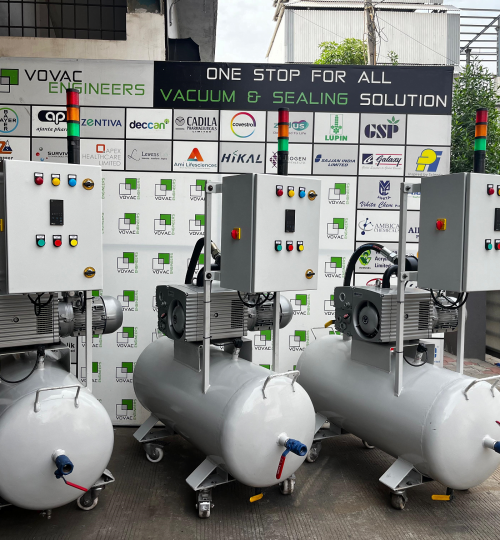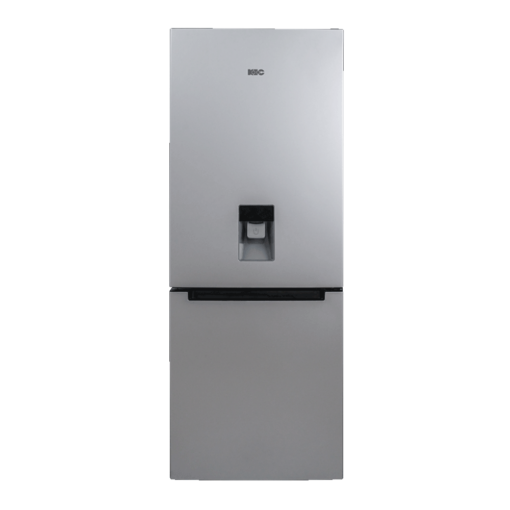Navigating the Landscape of Vacuum Pump Suppliers in the United States

Vacuum pumps play a crucial role in a wide range of industries, including manufacturing, pharmaceuticals, semiconductors, food processing, energy production, and scientific research. These systems enable processes that require the removal of air and gas molecules to create a vacuum environment. Given the technological diversity and application-specific requirements, choosing the right vacuum pump is only part of the equation—the other critical aspect is selecting reliable vacuum pump suppliers.
In the United States, the landscape of vacuum pump suppliers is vast and varied. From high-volume industrial vendors to niche scientific equipment providers, suppliers differ in their technical capabilities, industry focus, and regional presence. This blog explores the essential factors involved in evaluating vacuum pump suppliers, the types of pumps commonly distributed, and how industries across the U.S. navigate supplier selection in a rapidly evolving market.
The Role of Vacuum Pump Suppliers
Vacuum pump suppliers serve as the primary bridge between manufacturers and end-users. Their responsibilities extend far beyond product distribution. In many cases, suppliers provide critical support functions such as technical consultation, application engineering, system integration advice, maintenance services, and logistical coordination.
In the context of the United States, suppliers often work with a wide range of industries, which require pumps capable of meeting stringent performance standards and regulatory compliance. Given this complexity, the choice of a supplier can significantly influence system performance, operational efficiency, and long-term equipment viability.
Types of Vacuum Pumps Commonly Supplied
Vacuum pump suppliers in the United States typically handle a wide range of technologies to meet diverse industrial and scientific needs. The most commonly supplied vacuum pump types include:
1. Rotary Vane Pumps
Common in laboratory and general-purpose industrial applications, rotary vane pumps are known for their compact design and oil-lubricated operation. Suppliers often carry both single-stage and two-stage variants.
2. Dry Scroll and Dry Claw Pumps
Ideal for clean processes that cannot tolerate oil contamination, these pumps are popular in semiconductor, pharmaceutical, and medical applications. Suppliers offering dry technology must often provide specialized technical support due to their specific maintenance needs.
3. Liquid Ring Pumps
Frequently used in chemical processing and wastewater treatment, liquid ring pumps are capable of handling wet and corrosive gases. Suppliers must ensure compatibility with various process fluids.
4. Turbomolecular Pumps
Used primarily in high-vacuum environments such as R&D labs, coating systems, and particle accelerators. These require precision handling and highly trained technical staff on the supplier side.
5. Diaphragm Pumps
Often used for small-scale applications in laboratories, diaphragm pumps are oil-free and chemically resistant. Suppliers commonly provide these for portable or benchtop applications.
6. Roots Blowers and Booster Pumps
Typically used in conjunction with other vacuum systems to enhance performance, especially in industrial applications. Suppliers offering booster systems need expertise in system integration.
Each type of pump comes with distinct service, installation, and operational considerations, all of which suppliers are expected to handle efficiently.
Factors That Influence Supplier Selection
Choosing the right vacuum pump supplier in the U.S. market is a decision that impacts not only the initial equipment performance but also the longevity and adaptability of the entire vacuum system. Several key factors should be considered when evaluating suppliers:
1. Technical Expertise
Suppliers with in-depth technical knowledge can assist with pump sizing, compatibility assessments, system integration, and troubleshooting. This is particularly important for custom or specialized applications.
2. Product Range
A diverse catalog allows for flexible solutions tailored to the specific needs of the operation. Suppliers that offer multiple types of pumps can help clients avoid compatibility issues across equipment.
3. Support Services
Suppliers that offer installation assistance, preventive maintenance programs, and spare parts availability can reduce system downtime and extend equipment lifespan.
4. Lead Times and Inventory
In time-sensitive industries such as manufacturing or food processing, equipment availability can be a determining factor. Reliable suppliers maintain adequate inventory and offer quick delivery options.
5. Industry Specialization
Some suppliers specialize in serving specific sectors like biotechnology, aerospace, or petrochemicals. Their familiarity with industry standards and regulations can be advantageous.
6. Geographic Coverage
A strong regional presence ensures faster response times and localized support, which can be critical in emergency service situations or system breakdowns.
Regional Distribution Trends in the United States
The distribution of vacuum pump suppliers varies by region, influenced by local industrial concentration, academic research activity, and infrastructure development. Here’s a look at how supplier activity correlates with regional trends:
Northeast
With a dense concentration of universities, research institutions, and biotech firms, suppliers in this region often cater to laboratories and cleanroom environments. High demand exists for turbomolecular and dry pumps.
Midwest
Known for manufacturing and automotive industries, the Midwest sees high utilization of rotary vane, liquid ring, and roots pumps. Suppliers in this region typically offer industrial-scale vacuum systems and services.
South
Energy production, food processing, and chemical manufacturing are dominant industries in the South. Vacuum pump suppliers here often focus on rugged, high-capacity systems, particularly in oil and gas or water treatment applications.
West Coast
Driven by the tech sector, aerospace, and green energy initiatives, the West Coast favors advanced vacuum technologies, such as dry scroll pumps, high-vacuum turbopumps, and hybrid systems. Suppliers here often support clean energy and semiconductor fabrication facilities.
Common Challenges Faced by Vacuum Pump Suppliers
Operating in the U.S. vacuum technology market comes with unique challenges. Suppliers must be equipped to handle the following issues:
1. Evolving Industry Standards
As industries adopt stricter environmental and safety regulations, suppliers must ensure that the pumps they provide meet updated compliance requirements, such as emission standards or cleanroom certification.
2. Technology Integration
Modern vacuum systems often need to interface with smart control systems and remote monitoring tools. Suppliers must stay current with automation technologies and provide pumps compatible with IoT environments.
3. Customization Demands
Clients frequently require custom vacuum configurations for specific applications. Suppliers need the engineering capability to design or recommend modular systems.
4. Supply Chain Constraints
Global disruptions can affect the availability of components and lead times. Suppliers with diversified sourcing and local warehousing tend to be more resilient.
Future Outlook for Vacuum Pump Suppliers in the U.S.
The demand for vacuum technology in the United States is expected to grow steadily, driven by emerging fields like renewable energy, electric vehicle battery production, and advanced materials manufacturing. This growth will place new demands on vacuum pump suppliers in several areas:
-
Sustainability: There is increasing pressure on suppliers to offer energy-efficient and environmentally friendly systems.
-
Digitalization: Integration with Industry 4.0 systems will require suppliers to provide data-driven solutions, including predictive maintenance tools and remote diagnostics.
-
Service Expansion: Post-sales support will become a competitive differentiator, with service contracts, on-site repairs, and training becoming standard offerings.
As industries evolve, suppliers will need to adapt their business models, expand technical capabilities, and invest in workforce training to remain competitive.
Conclusion
In the complex and highly specialized world of vacuum systems, vacuum pump suppliers in the United States serve a crucial role that extends far beyond product delivery. Their ability to provide technical guidance, adapt to specific industry needs, and offer comprehensive support services makes them indispensable partners in a wide range of applications—from research laboratories to heavy manufacturing.
Understanding the dynamics of supplier capabilities, regional strengths, and future industry trends is essential for organizations looking to make informed purchasing and partnership decisions. By selecting the right vacuum pump supplier, U.S.-based businesses can ensure operational efficiency, system reliability, and long-term success in their vacuum-dependent processes.







